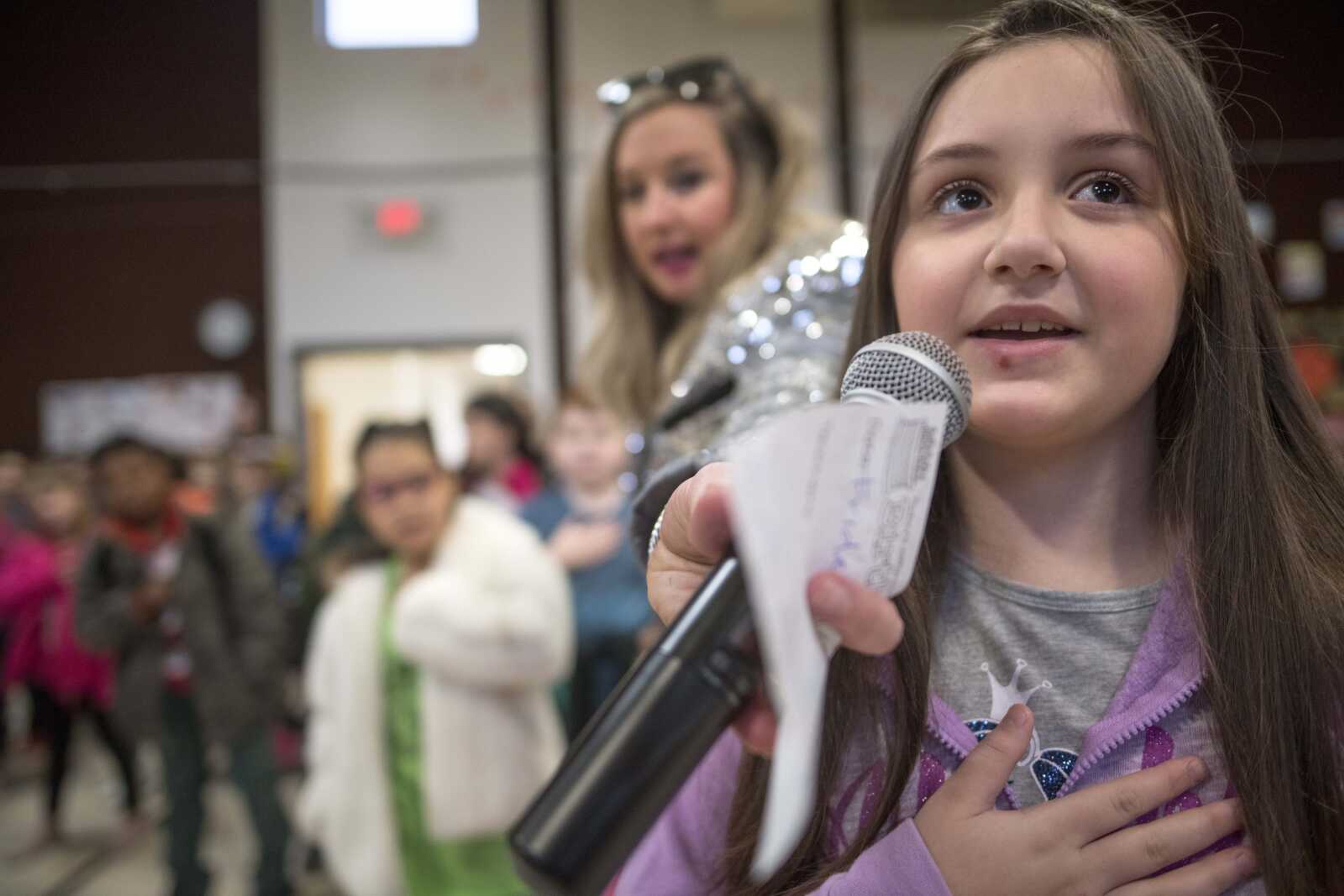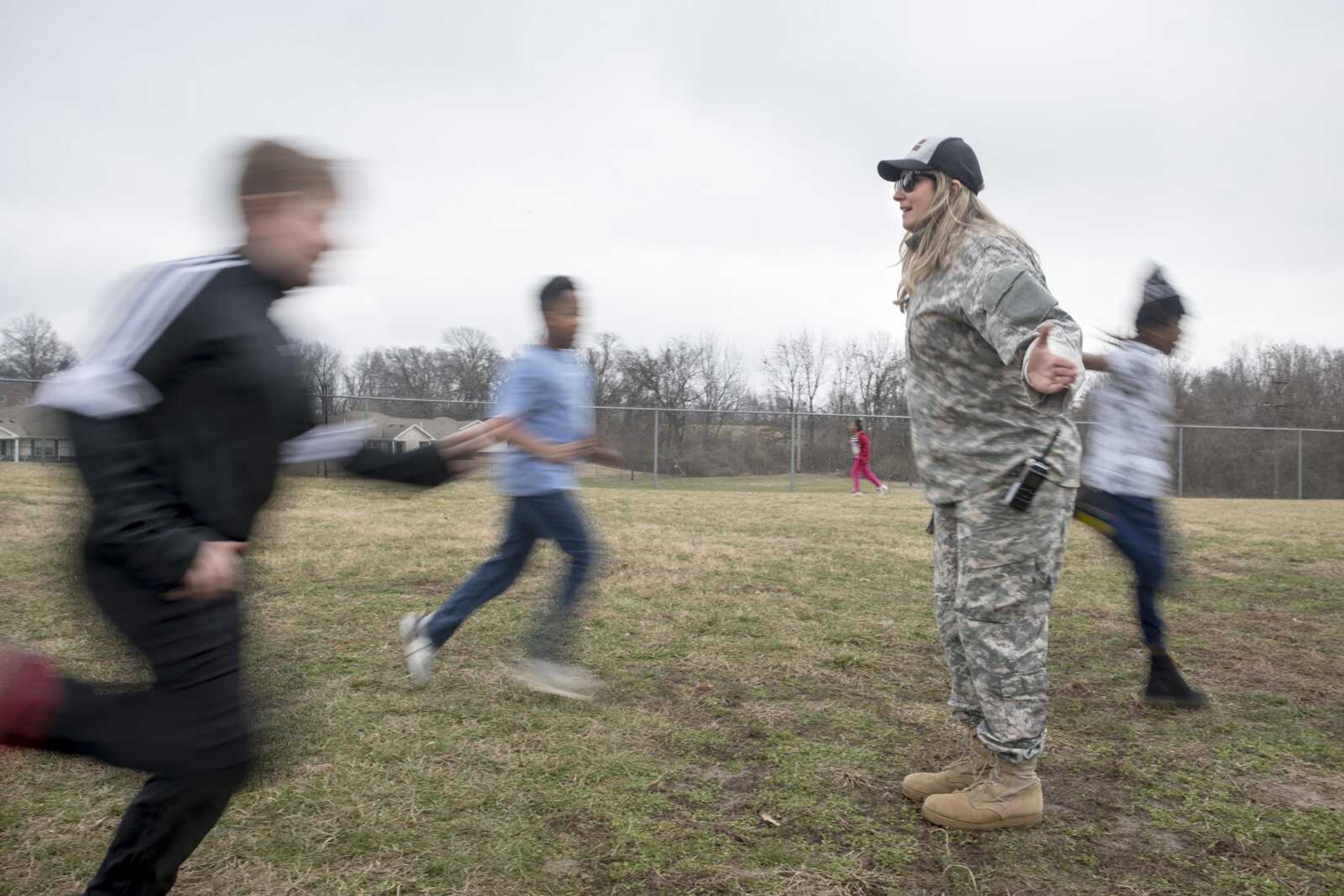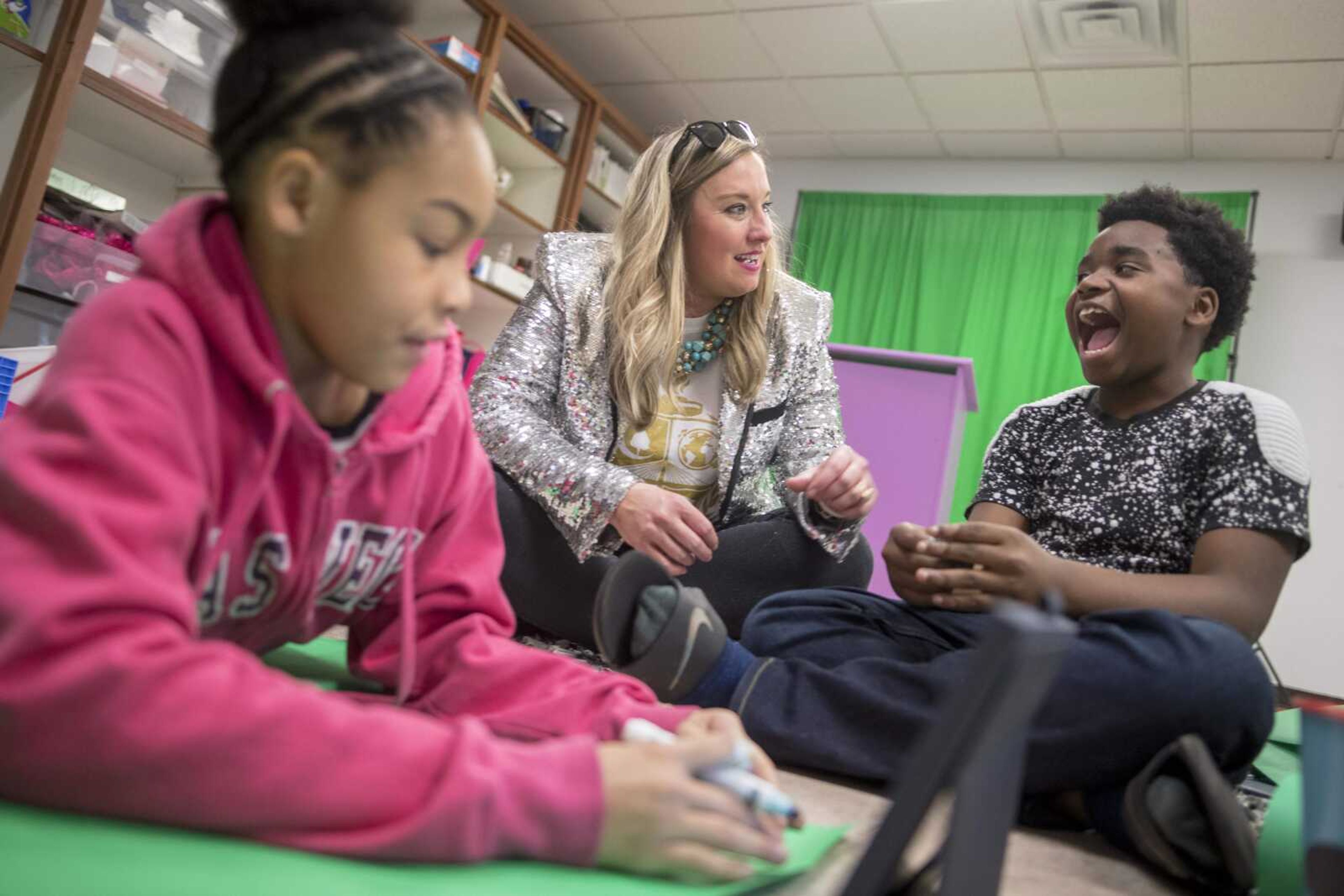Kind words, kind actions
Leigh Ragsdale's day does not begin with jumping jacks. It may come as a surprise to those who know the Jefferson Elementary principal -- now in her second year in that position -- given her signature infectious exuberance, but the truth is Ragsdale starts her mornings like any number of people: with emails and two cups of coffee...
Leigh Ragsdale's day does not begin with jumping jacks. It may come as a surprise to those who know the Jefferson Elementary principal -- now in her second year in that position -- given her signature infectious exuberance, but the truth is Ragsdale starts her mornings like any number of people: with emails and two cups of coffee.
On the last morning of January, a Friday, she sipped that coffee from a mug bearing the happy slogan, "Actually, I Can," an affirmation which, to Ragsdale, was just as important as the caffeine. Such mantras of optimism, she said, are integral to both her personal and pedagogical philosophies. People, she said, whether adults or children, seldom flourish without a foundational degree of physical and emotional security.
"We say it every morning," she said. "You are safe and you are loved."
So for a school like Jefferson, which hosts a significant proportion of at-risk students, a commitment to structure and mindfulness has become a point of constant emphasis; a crucial means to academic ends.
Her first coffee done, Ragsdale put the second in a to-go mug, donned a sequined blazer (one of several in a kaleidoscopic closet) and headed off to school.

Shortly before 8 a.m., as students arrived, Ragsdale made a point to greet every student with either a hug, eye contact or by name, in part to help gauge any potential issues. Most kids jumped into Ragsdale's arms, cackling with laughter. One literally breakdanced. But others weren't having it and that was okay too.
The important thing, Ragsdale said, was that they get human contact before they even enter the building. That way, students start off on the right foot and teachers get a sense of what students may need.
The morning gym routine that followed built on that momentum, reminding students of the school's mission (kind words, kind actions) and setting expectations in accessible terms before sending the classes off to start the day.
There was relative calm for all of about 15 minutes before Ragsdale was summoned by walkie-talkie and took off in a run toward a classroom across the building. There had been a scuffle, and though no one was badly hurt, it was a serious violation of the social contract they'd just recited as a school in the gym.
"We look at behavior just as much as we do academics," Ragsdale explained in an interview the week prior. "If a kid can't read, we don't penalize them. Right? We wrap every support we have around them and help them rise. We've got to do the same with behaviors and with expectations."

That doesn't mean Ragsdale and her staff are soft, though. She rebuked the instigating student sternly in the office, but rather than leverage anger against the child, she focused on the consequences of violent behavior. It had made other students feel unsafe, was unacceptable and would not be easy to rectify. At Jefferson, apologies are always made, but aren't always accepted. At least not until there can be genuine reconciliation.
"When kids come here, they're going to be loved and they know that without a doubt," Ragsdale said. "But they know we don't play either. The expectation is high because they can achieve that."
And thus far, the efficacy of such an approach seems to be borne out in the data. In the first semester of last year --the first of Ragsdale's tenure-- there were 138 office referrals for discipline. By February of this year, there were fewer than 20.
And when it comes to discipline, Ragsdale gets creative.
On this day, for example, she set out to correct what had become recurrent misbehavior on the recess yard. But rather than cancel recess, she traded her sequined blazer for borrowed Army fatigues and adopted the persona of "General Ragsdale, Ms. Leigh's evil twin sister" to address the issue. Unconventional, to be sure, but the spectacle captured students' attention in a way that seemed less likely to trigger knee-jerk defensiveness. She then couched the message in terms familiar to the students; in essence, school is a safe place and expectations are high, so keep your hands to yourself.
Then "General Ragsdale" went with them to recess and played.
By prioritizing the school culture, Ragsdale and her staff seek to put students in a better position to embrace what is called project-based learning, a dynamic teaching style designed to capitalize on and perpetuate students' natural curiosity and problem-solving skills. For kindergarteners this time of year, that means studying the concept of the world, from different biomes to the value of travel. For fourth-graders, it means deep study of a variety of career paths.
And in turn, by and large, the students prove her right. The classrooms are full of students who seem comfortable and engaged, whether the project is cooking waffles or spinning wholesome raps and beats about the kindness club at Jefferson.
"I think sometimes we as humans think life is complicated and it has to be this huge complex system. It's really not.," Ragsdale said. "It's really simple. Love other people be a good human. Treat other people the way you want to be treated."
Or, in the parlance of Jefferson Elementary: kind words, kind actions.
Connect with the Southeast Missourian Newsroom:
For corrections to this story or other insights for the editor, click here. To submit a letter to the editor, click here. To learn about the Southeast Missourian’s AI Policy, click here.










